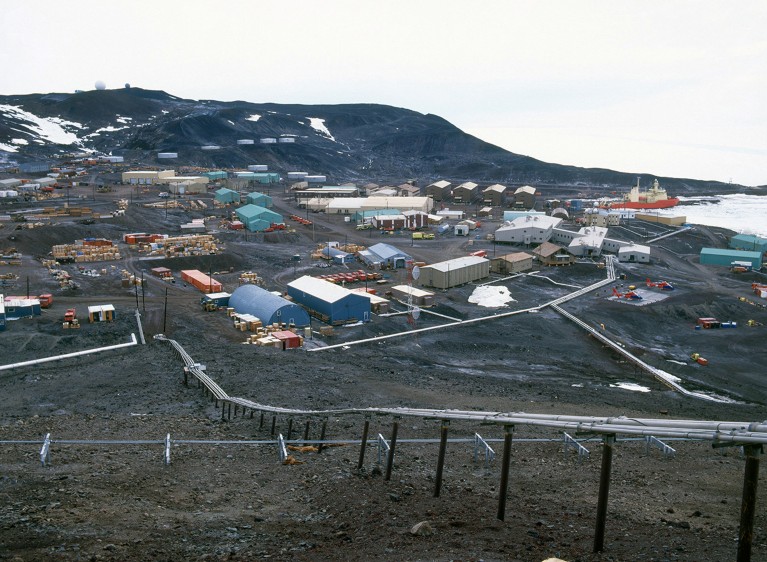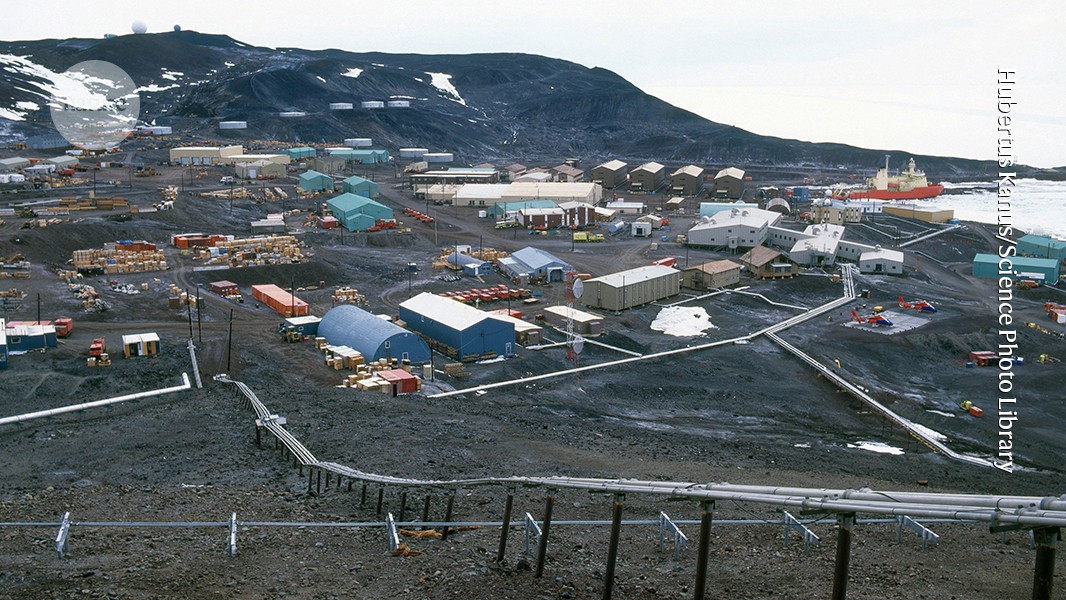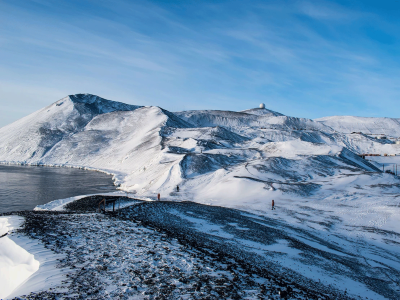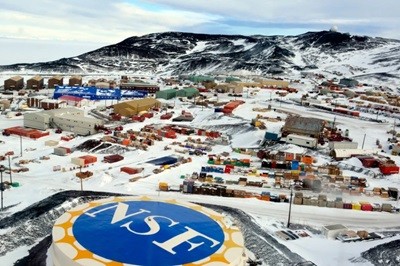
McMurdo station is the largest US Antarctic research base.Credit: Hubertus Kanus/Science Photo Library
Around 40% of people who filled out a survey about working at US Antarctic research bases in the past two years reported experiencing sexual harassment or assault during their time on the ice. Almost half of those were people working there for the first time.
Scientists say harassment in the Antarctic must stop — but US plan falls short
These and other statistics come from an extensive new questionnaire commissioned by the US National Science Foundation (NSF) about sexual misconduct in the US Antarctic research programme. It is the most thorough look yet at a persistent and pervasive problem that has affected the careers of many polar scientists and triggered investigations by the US Congress.
Scientists who have worked with the US Antarctic Program say they are tentatively hopeful that the survey will bring about lasting change at the NSF and the polar programmes it oversees. It is “an important step towards addressing these challenges”, says Asa Rennermalm, a physical geographer and polar scientist at Rutgers University in Piscataway, New Jersey. “Surveys like this play a critical role in documenting lived experiences that have too often been ignored or minimized.”
The agency says it will use the findings of the 18 July report to strengthen safety plans for scientists and others working in Antarctica. “The survey made clear that meaningful change is happening, but that it also needs to continue,” said Renée Ferranti, special assistant to the director of the NSF for sexual assault and harassment prevention, at a webinar last week to disseminate the survey results.
But with US President Donald Trump calling for huge budget cuts at the agency and targeting issues of diversity, equity and inclusion, it is unclear what capacity the NSF will have to respond.
If the NSF’s Antarctic programmes have to scale back because of budget cuts, that, “combined with a diminished political emphasis on workplace safety and community, will significantly slow progress”, says Leigh Stearns, a glaciologist at the University of Pennsylvania in Philadelphia. But the new report does suggest that awareness of sexual misconduct in Antarctica and support for stopping it is improving, she says.
The NSF said it was unable to respond to Nature’s request for comment.
Remote work
The agency commissioned the survey from an independent firm, which sent invitations to everyone who deployed with the US Antarctic Program between 2022 and 2024. That included scientists, students, contractors, military personnel and others who worked on bases such as the sprawling McMurdo station on the Ross Sea.
Does US science have a future in Antarctica? Trump cuts threaten to cancel fieldwork and more
Of the 679 people who responded, 521 completed a ‘victimization inventory’ to provide further details on their experiences. Of those, 41% reported experiencing at least one incident of sexual assault or harassment, such as unwanted touching or sexual comments. Nearly 69% of the 572 people who responded to detailed questions about being a bystander said they had witnessed at least one such incident. The harassment spanned genders, with 59% of victims being female and 36% men, and came from a variety of sources, with 51% perpetrated by a contractor and 18% by a supervisor.




